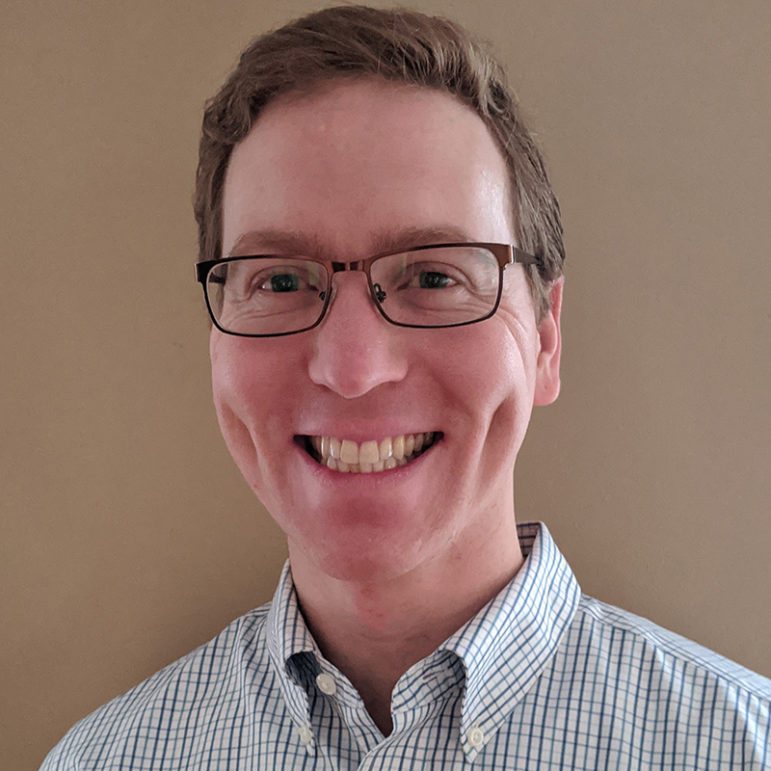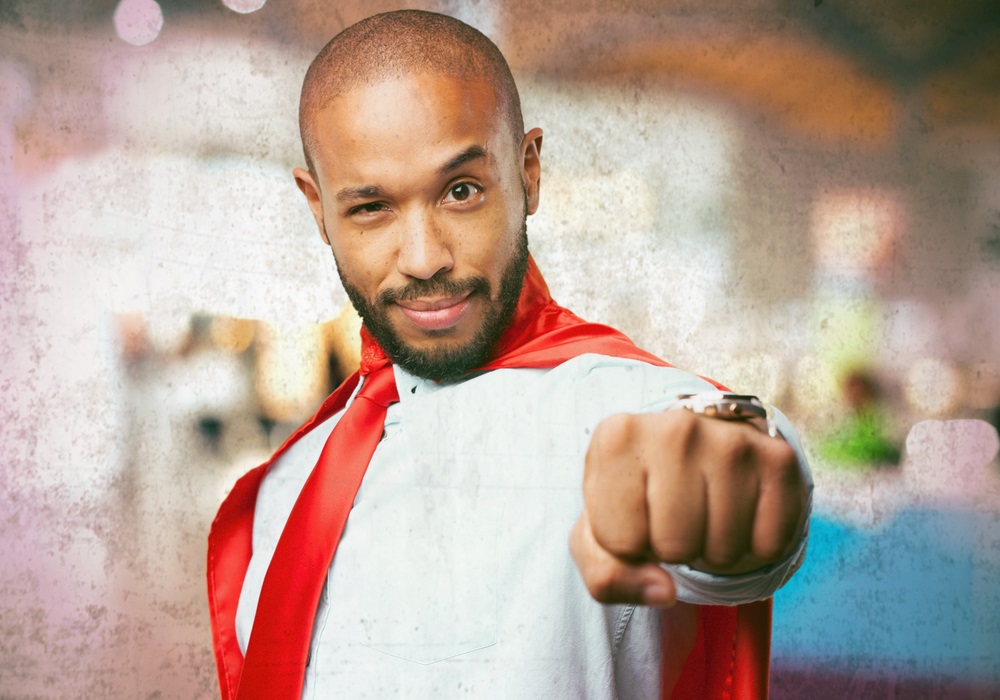![]() I'm a licensed clinical social worker providing behavioral health service in a juvenile detention center in a large urban area. My team is subcontracted to provide these services, so when the time came for organizations to scale back to essential services or essential employees only, we ended up shifting to remote work to limit the number of people going in and out of the detention center. With some trial and error and leaders coming together, we were able to adopt a telehealth platform in order to continue services to the best of our ability and to try to meet the needs of the detention center.
I'm a licensed clinical social worker providing behavioral health service in a juvenile detention center in a large urban area. My team is subcontracted to provide these services, so when the time came for organizations to scale back to essential services or essential employees only, we ended up shifting to remote work to limit the number of people going in and out of the detention center. With some trial and error and leaders coming together, we were able to adopt a telehealth platform in order to continue services to the best of our ability and to try to meet the needs of the detention center.
From the provider side, we were able to say, “Sure, we can be flexible, we want to support the safety measures in place for the youth.” And I'm thinking to myself, when somebody says “We can be flexible” or “That's not a problem, we can try to meet the needs of whomever,” usually flexibility for our team means some sort of strain on somebody else. Essentially it transfers work to someone else to free up yourself to be flexible.
Same with the center in this scenario. It really took other people to make up for our flexibility. Our ability to work remotely was only made possible by people who were on the front lines, those people who were deemed essential workers, who were largely in charge of making sure that that detention center still ran the way it was supposed to.
I'll just say right now that I'm very grateful for all those people who allowed me to work remotely, and I realize that it is a great privilege: 1) to be able to maintain employment and 2) to be able to shift to a telehealth platform that ultimately keeps me and my family safe.
Fast forward now three months. Businesses are starting to reopen. In our state, we're doing a gradual phase-based approach where there's a red, yellow and green phase. We got out of the red phase to the point where we could go back to the detention center for in-person services.
Walking back into the center sure felt really different. In a way, it almost felt like a ghost town. And in a similar way, it almost makes me think of it like a forgotten place. When I walked in the door, I noticed all the distancing measures, all the adjustments with doors, making sure that folks had the necessary PPE or getting temperature checks first coming in. So with all the new action steps and building accommodations, it still felt a little bit muted walking in that day.
For me to have youth see our team, we have to rely on front-line staff to ensure that proper safety protocols are maintained to transition youth throughout the building. So after I went through security, I met up with my designated front-line staff person to get back in the old routine of seeing kids face to face.
Forgotten kids and forgotten adults
Of course, we had to catch up and talk about what the heck had happened in the past three months. I asked how he and his family were doing, then asked "What’s it like for you to be working here now? What's that mean for you to be working here in the midst of a pandemic?"
I remember him telling me, “You know what, Sean, sometimes I feel like because we work with a population that are sometimes considered people's throwaways, are the kids that nobody wants to work with, or a population that just has a bad reputation, our association with this population almost makes us seem like we too are an afterthought or are some type of undesirable. It’s like that the work that we're doing isn't necessarily the same kind of work that people in the health care fields are doing right now.
“And I know we don't get into this for the praise, but we are doing the same types of things that health care workers are doing. We're still in the mix with all this, we're the ones that are trying to get these kids tested, making sure we do intakes with kids coming off the streets, and trying to keep kids safe and healthy as possible considering the circumstances of the court system. Now what the courts did is out of our control and only we can control what's in front of us and what we do with it when the kids get to us.”
When he mentioned that, I understood a little more about that feeling I had walking in, that muted ghost town feeling. It really was a place of forgotten kids and of forgotten adults who supervise these youngsters. I started to think about how many signs I saw on my drive into work, the signs that say “Heroes Work Here,” and I'd see these signs in front of a hospital, a residential cottage for folks with intellectual disabilities, at other places where there were direct service workers who were responsible for the care of another person. When I pulled up to the detention center there was no such sign.

Sean Snyder
Why was there no sign? Part of me thinks that it may be just our current political climate that is imbued with the urgency to reduce the prison population, or many of the protests about how unjust the justice system is. And I would agree there are a lot of flaws with the system. But it doesn't necessarily mean the people who are doing the work don't care.
A lot of the time these people come into these jobs knowing that they want to be working with kids and maybe they want to make a difference in this kid's life that's going to put the kid on a good track for their future. It tends to come from a great place, and these kids are some of the most vulnerable kids and those who have the most complex needs. And the needs are complex because other people maybe didn't want to really deal with the youth’s challenges. Maybe the youth are from disadvantaged neighborhoods that structurally have been left out of a robust economic life or fulfilling public life.
So again, why no sign? On one hand, I wonder was a sign not up because maybe there was one initially and it got taken down by protesters? Only a week before my arrival back, I read on a local news outlet that there was a demonstration outside the detention center with the message that the kids should be released, that it was a health hazard to have kids detained in close proximity.
Many times protesters don’t know what really goes on inside these systems — it’s not such an easy decision. What else is remarkable is that the people that work in buildings like the detention center often have little or no say about what happens as a system. Those decisions are made by the courts.
So this may be the age-old split between politics and administration within the world of the public sphere, where people who are administering the policies created by our politics have little say in the formation or creation of those politics. They probably don’t have representation in the conversations or the very policies that they're being ordered to carry out. These people are doing their jobs because they care enough to do the work. And I want to say they're doing a damn good job.
Maybe there was no sign put up at all. Regardless, the point of this post is that heroes do work in these places. Heroes do work in detention centers.
As much as people may think that the system is unjust, which is definitely true, the people in these systems are not necessarily unjust. Think about it in terms of a war zone. You may disagree with the war, but that doesn't lessen the job that health care workers are doing tending to people wounded in battle. The fact it's in a war zone doesn't make their jobs any less respected or less needed.
While there may be no external sign, I'm sure folks on the inside expressed their appreciation in their own way.
I want to end this by saying thank you to all the people who are doing this work who are on the front lines because they care about something bigger than themselves. And I want to thank them for making my job easier and ultimately allowing me to keep my family safe during a pandemic. So this might not be the sign outside of the center, but at least in our virtual space, it can say “Heroes Work Here Too.”
Sean Snyder, MSW, LCSW is a licensed clinical worker practicing and teaching in Philadelphia. He enjoys Phillies baseball.

Excellent article Sean. I manage a small west coast detention center. All of these things are true for us as well, except, we haven’t welcomed back all the staff yet. We are blessed to have an in house psychologist that dutifully shows up to work alongside the detention staff. Thank you for taking a moment to shine a light on people that deserve to be honored.
Pingback: Dr. Greg Manning’s – Permanency in the News – Week of 8/24/20 – Dr. Greg Manning
Thanks, Sean! What a wonderful way to celebrate the great folks on the font lines who meet the daily needs of kids in detention. It’s just like you to acknowledge the very best in all of us!